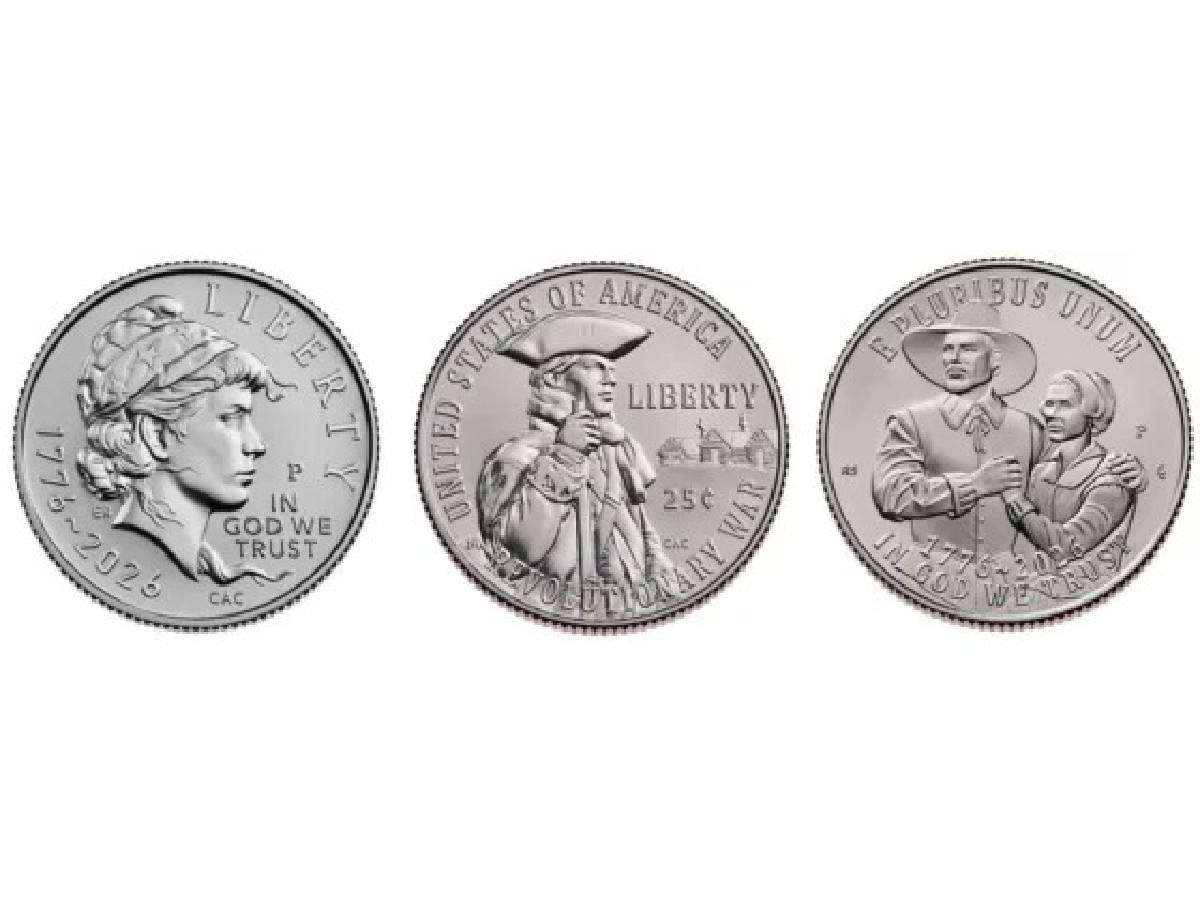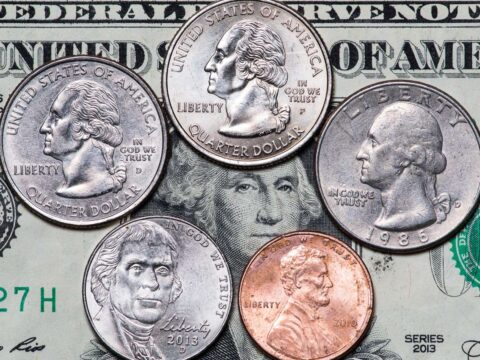
What is money made of in the United States? Specifically, most people want to know what are coins made of — and is paper money really made from paper?
You may be surprised to find out that “silver pennies” aren’t really silver.
Nickels? Umm… Maybe they should be called “coppers.”
And dollar bills? There’s something unusual about that paper…
Money Isn’t Made Of What You Think!
So, what is money made of? That’s the $64,000 question!
A lot of folks believe they know exactly what the money found in pocket change is made from. Most people think that:
- Pennies are made of copper
- Nickels are made of nickel
- Dimes, quarters, and half dollars are made of silver
- Silver dollars are made of silver (duh, right?)
- Golden dollars are made of gold
- And paper money is made from paper
But, if you’re reading this article, then you may have a hunch that there’s at least a little more to the story — and you’re right!
So, read on to find out what coins are made of and what paper money is made of in the United States…
What Are U.S. Coins Made Of?
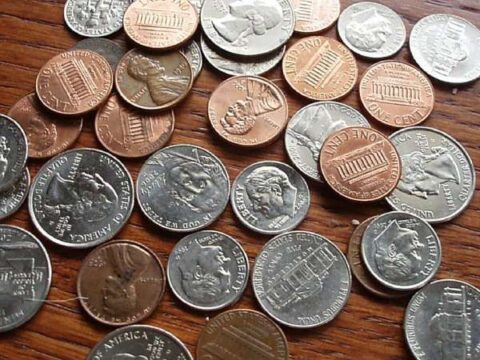
You probably guessed correctly — coins are made from metal.
But what kind of metal?
This is where most peoples’ guesses become a little wilder…
I’m going to answer the question for each individual denomination, one by one — starting with the smallest (pennies) and ending with the largest (dollar coins).
Here is what the United States Mint makes each denomination of coins from…
What Are Pennies Made Of?
Did you guess copper?
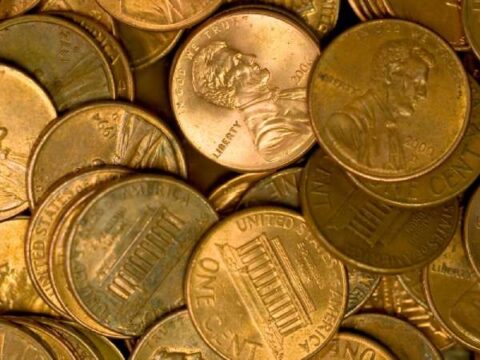
OK, you’re right… Sort of. But there’s a lot more to most pennies than just pure copper.
The last time a United States penny was made with only copper was 1857!
The one-cent coin has been struck by the U.S. Mint since 1793.
However, the U.S. penny has seen a lot of changes in metal compositions over the years!
Here’s what pennies are made of, by year:
- 1793 to 1856 — 100% copper
- 1857 to 1864 — 88% copper, 12% nickel
- 1864 to 1942 — 95% copper, 5% tin and zinc
- 1943 — zinc-plated steel (see… 1943 pennies are not made of silver)
- 1944 to 1946 — 95% copper, 5% zinc
- 1947 to 1962 — 95% copper, 5% tin and zinc
- 1962 to 1982 — 95% copper, 5% zinc
- 1982 to present — copper-plated zinc
NOTE: In 2009, certain collector-only pennies were made from the traditional 95% copper, 5% tin and zinc composition.
What Are Nickels Made Of?
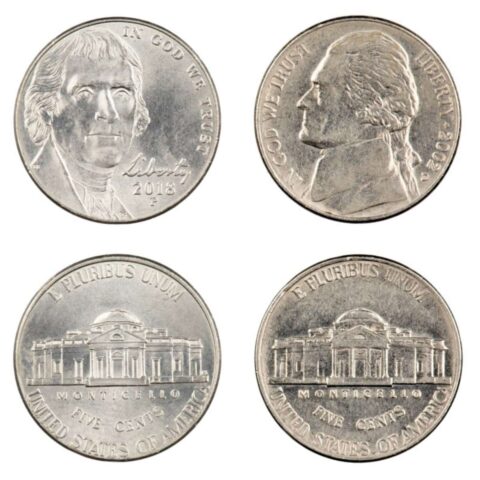
It sorta makes sense that nickels are made of nickel, right? But that’s not all they’re made of!
The five-cent coin debuted in the U.S. in 1866 and it has been made of 3 different metal compositions since then.
Here’s what nickels are made of, by year:
- 1866 to 1942 — 75% copper, 25% nickel
- 1942 to 1945 — 56% copper, 35% silver, 9% manganese (these so-called war nickels are worth saving!)
- 1946 to present — 75% copper, 25% nickel
So, nickels aren’t really “just” nickels!
They’re actually mostly copper — even the silver war nickels made during World War II.
However, there is enough silver in those war nickels to make them worth much more than face value.
TIP: You can easily tell a war nickel from the others by looking at the back of your nickels. If you see a big “P,” “D,” or “S” mintmark over the dome of Monticello, then you’ve got a silver war nickel!
What Are Dimes Made Of?
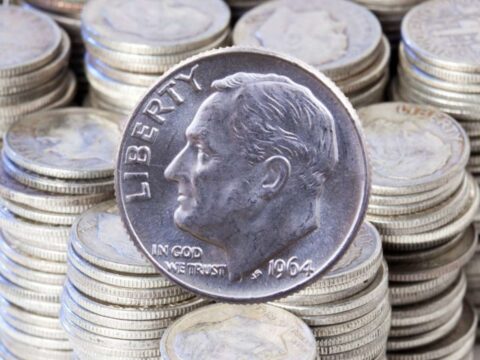
A lot of people refer to their dimes (and really, any of the larger-denomination coins) as “silver.”
However, this term has more of a historic origin than an actual meaning in today’s world of base-metal coinage.
You’ll see why when you look at the various metallic compositions of the 10-cent coin through the years — since its debut in 1796.
Here’s what dimes are made of, by year:
- 1796 to 1837 — 89.24% silver, 10.76% copper
- 1837 to 1964 — 90% silver, 10% copper
- 1965 to present — copper-nickel clad
NOTE: Since 1992, certain dimes made only for collectors feature a mostly silver composition.
What Are Quarters Made Of?
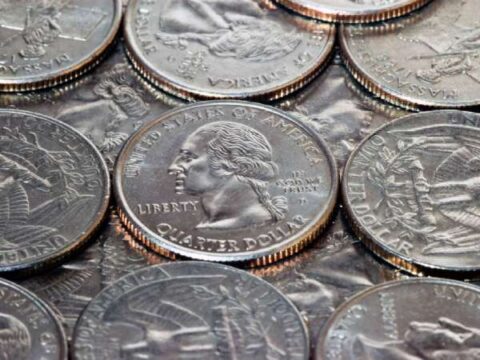
The quarter dollar, which debuted in 1796, has also seen its metallic composition change over the years.
Originally made of silver, circulating quarters these days are struck in non-silver formats.
Here’s what quarters are made of, by year:
- 1796 to 1838 — 89.24% silver, 10.76% copper
- 1838 to 1964 — 90% silver, 10% copper
- 1965 to present — copper-nickel clad
NOTE: Since 1975, certain U.S. quarters have been minted exclusively for collectors featuring a silver composition of 40% or greater.
What Are Half Dollars Made Of?
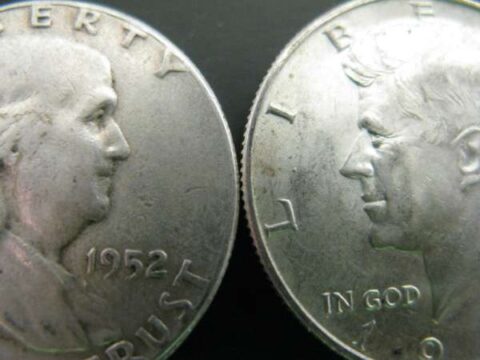
The 50-cent piece made its debut in 1794.
You may not see half dollars in pocket change too often. But when folks do stumble upon one, they often want to know how much silver is in a half dollar.
Here’s what half dollars are made of, by year:
- 1794 to 1836 — 89.24% silver, 10.76% copper
- 1836 to 1964 — 90% silver, 10% copper
- 1965 to 1970 — 40% silver, 60% copper
- 1971 to present — copper-nickel clad
NOTE: Since 1975, some half dollars with silver content have been made for coin collectors.
What Are Dollar Coins Made Of?
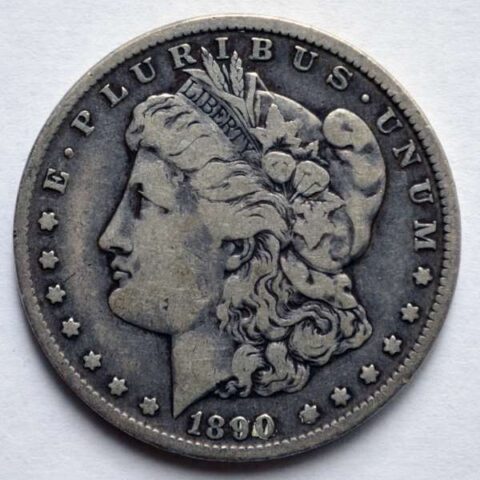
When many people think of U.S. dollar coins, they usually conjure up images of silver dollars. These coins are typified perhaps best by the Morgan dollar (pictured) that was minted from 1878 through 1921.
It’s true that classic silver dollars struck through the 1930s are made from mostly silver.
But the more recent dollar coins minted since the 1970s are generally made of anything but!
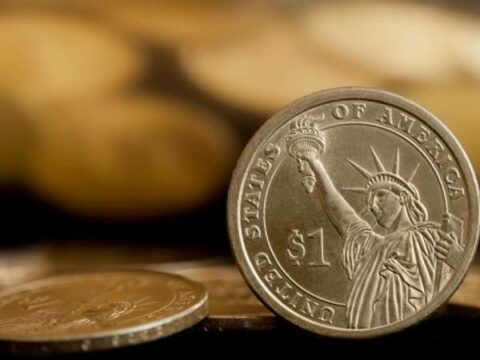
The metallic composition of circulating dollar coins, which debuted in 1794, has changed a lot through the years.
Here’s what dollar coins are made of, by year:
- 1794 to 1839 — 89.24% silver, 10.76% copper
- 1840 to 1935 — 90% silver, 10% copper
- 1971 to 1999 — copper-nickel clad
- 2000 to present — copper with manganese-brass cladding
NOTE: Since 1971, some dollar coins have been struck for coin collectors with a silver content of at least 40%.
What Is Paper Money Made Of?
You’ve probably noticed that your dollar bills don’t feel like the type of paper you’re used to using.
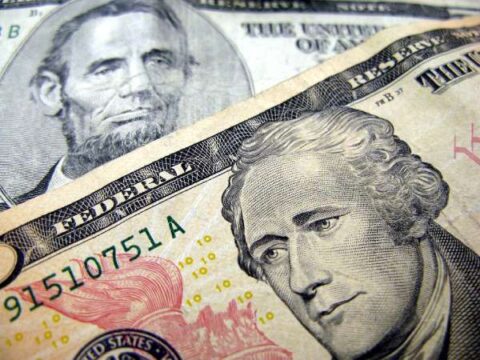
Just try to crinkle a dollar bill… or try crushing it.
See? It’s not old-fashioned paper like you’d write notes on or print documents with. And it certainly isn’t the type of stuff made for printing magazines and newspapers!
So, what kind of paper is U.S. money made from?
Well, it’s a very special kind of paper.
You see, most of the paper we’re used to seeing is made from cellulose, or wood pulp.
But the United States Federal Reserve Bureau of Engraving and Printing makes banknotes from a material that more closely resembles clothing.
This video answers the question best, “What is paper money made of?…
And there you have it! So-called paper money is made of:
- 75% cotton fibers
- 25% linen
Who would’ve thought?
Well, now you know!


